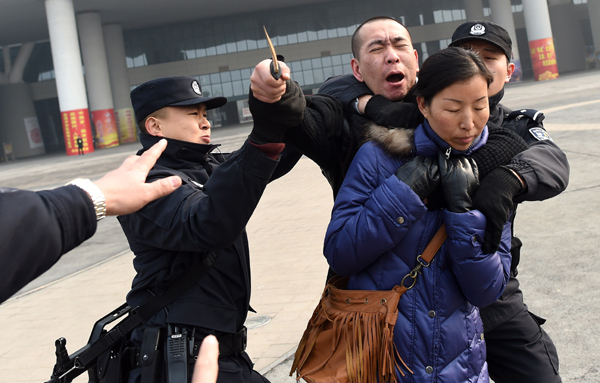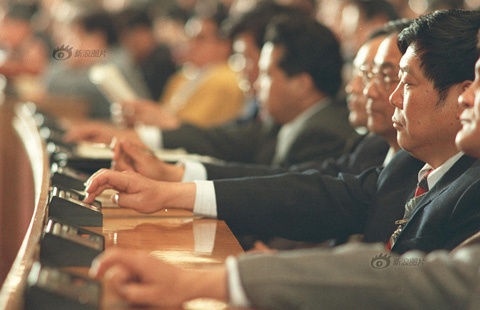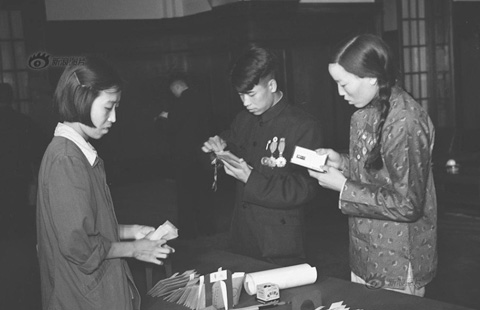Taking the fight to the terrorists
Updated: 2015-03-14 10:10
By Cui Jia, Zhang Yi and Zhang Yan(China Daily)
|
||||||||
 |
|
Police engage a "terrorist" during a drill at Wuhan Railway Station, Hubei province. [Xiao Yijiu/Xinhua] |
The draft is expected to pass into law after its third reading, which means it should be on the statute books within a year, if the customary procedures are followed. Once passed, the law will reinforce China's counterterrorism efforts by providing a legal framework for the courts and security forces, said an official familiar with the legislation, who spoke on condition of anonymity.
In the latest version of the draft, the definition of terrorism has been widened to include inflammatory comments and activities that could provoke fear-mongering, jeopardize public safety, or attempt to coerce the Chinese government or international organizations by the use of threats, violence or destructive acts.
The task of identifying terrorist groups and their members has been delegated to the anti-terrorism departments at the State and regional levels, and to courts at all levels.
The draft seeks to strike a balance between combating terrorism and protecting the rights of the individual. In particular, the authorities' access to citizens' private information via electronic technology will be subject to "strict approval procedures", and the information obtained will only be admissible for use in counterterrorism operations.
"The draft also makes it clear that security checks on people, goods and vehicles in major public places must be conducted in accordance with the law and regulations," the official said.
The Legal Affairs Committee of the NPC also decided to introduce an article requiring the departments responsible for the control of airspace, civil aviation and public security to tighten their procedures and aviation-related activities, to prevent aircraft from being targeted.
In May, the NPC sent the draft research group to Xinjiang to learn from the region's long experience of fighting terrorism, and to seek advice, said Wang Yongming, deputy director of the Standing Committee of the Regional People's Congress.
President Xi Jinping also weighed into the debate after a visit to Xinjiang in April last year. On the day Xi left the region, three people were killed and 79 were injured in a bomb and knife attack at a railway station in the regional capital Urumqi, that the police identified as the work of terrorists.
However, even though only a few articles have been made public, they have stirred up controversy, especially a proposal added to the second draft that would allow armed police units and the People's Liberation Army to assume command of anti-terrorism operations if the police are unable to deal with an incident.
- Iraqi forces battle Islamic State for Tikrit on two fronts
- Venezuelans march in solidarity with govt
- Downton Abbey fan Kate Middleton visits set of hit TV show
- UK fantasy author Terry Pratchett dies
- Indian Prime Minister arrives in Sri Lanka on state visit
- Top diplomats set to meet to discuss China, Japan, South Korea summit

 Apple Watch clones clock big hit in market
Apple Watch clones clock big hit in market
 Historical images of 'two sessions'
Historical images of 'two sessions'
 Sacred craft dwindles
Sacred craft dwindles
 Across America over the week (from March 6to March 12)
Across America over the week (from March 6to March 12)
 14 firsts in history of 'two sessions'
14 firsts in history of 'two sessions'
 Zither village: Producer of musical charm
Zither village: Producer of musical charm
 Top 10 largest new international plants in China
Top 10 largest new international plants in China
 Picturesque scenery of red earth in Yunnan
Picturesque scenery of red earth in Yunnan
Most Viewed
Editor's Picks

|

|

|

|

|

|
Today's Top News
Foreign investment restrictions to be cut
New bureau set to boost graft fight
Taking the fight to the terrorists
China: Action to be taken if deadly bombing happens again
28 high-ranking 'tigers' to stand open trial
China lodges representations after Myanmar bomb kills 4
Free trade zones in China
China has huge growth potential
US Weekly

|

|








